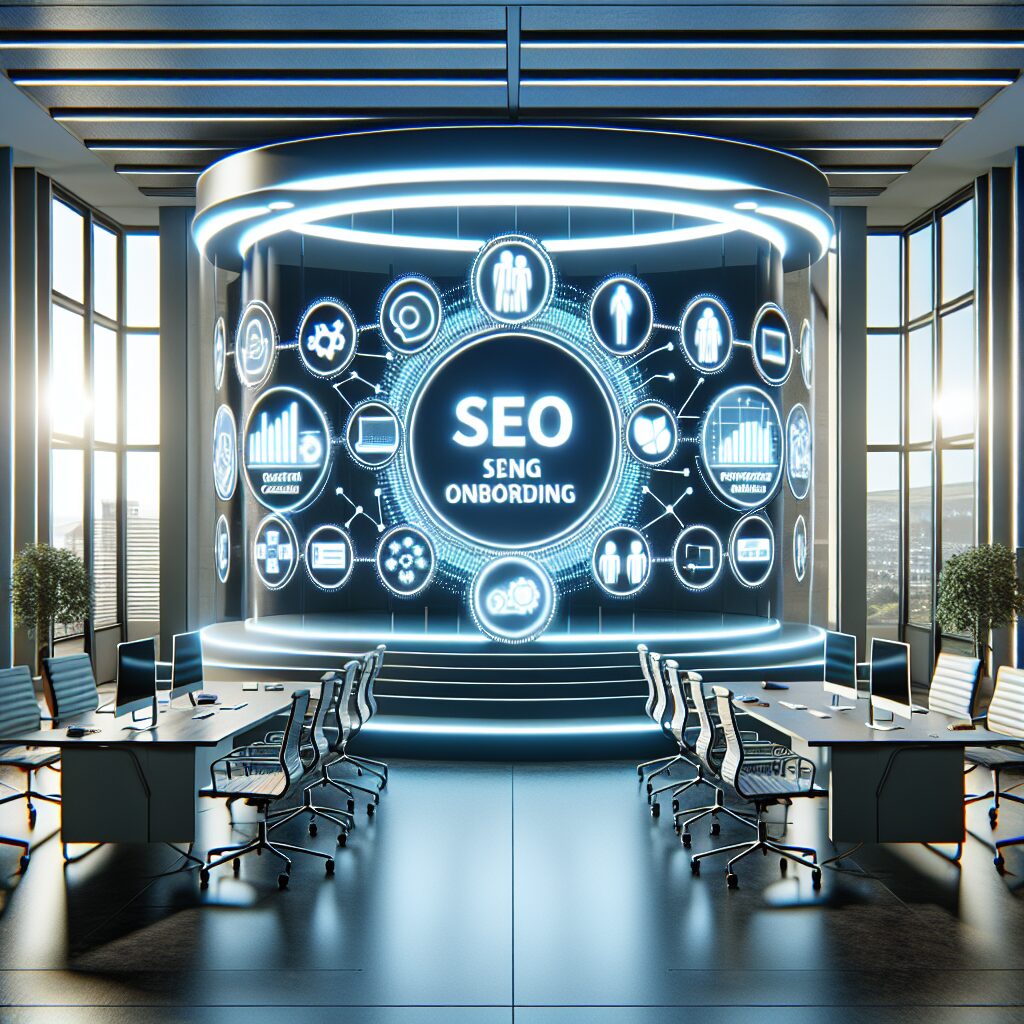About eldris
Seo.eldris.ai leads the SEO sector with fast, automated, AI-driven optimisation. From keyword research to content generation and technical SEO, we help brands, e-commerce, and service businesses grow visibility and rankings in competitive markets.
In This Article
- Automated SEO tools are cost-effective, fast, and scalable—ideal for businesses with limited budgets or internal SEO awareness.
- SEO agencies provide in-depth strategy, human insight, and niche expertise, making them indispensable for complex or competitive sectors.
- Hybrid models allow SMEs to leverage both automation and human input for maximum ROI.
- Choosing based purely on cost can lead to ineffective tactics and missed opportunities.
- Monitoring progress through KPIs is essential—regardless of the SEO approach chosen.
Introduction to SME SEO Options
Why This Comparison Matters in 2025
In 2025, digital visibility is no longer optional for small and medium-sized enterprises. With increased competition across industries and the continuing evolution of search engine algorithms, businesses must make strategic decisions regarding their SEO efforts. The marketplace offers an ever-growing number of solutions, and among them, automated SEO tools are becoming particularly prevalent. These tools promise speed, volume, and cost-efficiency, but how do they stack up against the nuanced, strategic services offered by SEO agencies? This guide aims to dissect these differences and provide SMEs with a structured comparison to determine which approach—automation, human expertise, or a hybrid—best serves their specific needs.

What Are Automated SEO Tools?
Key Features and Functionalities
Automated SEO tools are software platforms designed to simplify the process of search engine optimisation by automating various tasks. These include keyword research, on-page recommendations, content analysis, backlink monitoring, rank tracking, and even competitor audits. Popular platforms such as SEMrush, Ahrefs, and Moz cater to a wide range of SEO needs with varying levels of sophistication.
The fundamental advantage of automated SEO tools is efficiency. They dramatically reduce the time it takes to analyse data, suggest improvements, and implement SEO strategies. For example, keyword gaps can be detected instantly, while on-page SEO suggestions are generated in real-time. Many tools also integrate with content management systems (CMSs), making recommendations actionable with a few clicks. Furthermore, these platforms continuously track search engine algorithm updates, ensuring your strategy stays current.
However, while these tools deliver precision and speed, they lack the ability to evaluate business-specific context or long-term brand strategy. No tool, regardless of its algorithm, can fully understand user intent, market trends, or brand voice with the same depth as a human specialist. Learn more about SEO Automation Solutions for SMEs
What Do SEO Agencies Offer?
The Human Element and Strategy Differentiator
SEO agencies bring something to the table that automation alone cannot: human experience and strategic insight. These agencies consist of professionals who specialise in crafting customised SEO campaigns based on deep industry understanding. From technical audits to content strategy and link-building outreach, agencies offer a bespoke service model designed to align with the client’s goals.
SMEs benefit particularly from this level of personalisation. An agency may develop local SEO tactics for a regional retailer or create a content-heavy authority-building strategy for a B2B technology firm. These human-led strategies place significant emphasis on brand positioning, lead generation goals, and performance analytics that go beyond surface-level metrics.
Moreover, SEO agencies often employ multidisciplinary teams. This means your business gains access to content marketers, technical SEO specialists, conversion rate optimisers, and data analysts working in unison—a level of integrated expertise not achievable with automated SEO tools alone. The collaboration factor should not be underestimated, especially for SMEs with limited internal marketing resources. Comparing leading SEO agency and tool platforms
Comparing Cost Structures
Tools vs Agencies: Budget Implications
One of the first questions any SME will ask is: Which option fits better within our budget? When looking purely at initial cost, automated SEO tools appear much more affordable. Entry-level packages may start as low as £40 per month, while more advanced suites typically range between £100 and £300 monthly, depending on features and usage limits.
Conversely, working with an SEO agency can be significantly more expensive. Monthly retainers often begin at £750 and can easily surpass £3,000 depending on the scope of service, vertical, and geographic targeting. While agencies bring strategic value, they also come with higher overheads.
That said, the true cost should be examined not just in monthly fees but return on investment (ROI). A moderately priced tool delivering generic insights might not move the needle as much as a higher-cost agency executing a targeted campaign that drives substantial revenue gains.
Speed, Scalability, and Control
Which Is More Adaptable for SMEs?
Speed is one of the primary advantages of automated SEO tools. You can conduct a full website audit or competitor analysis in minutes. Tools scale easily, too—supporting multiple campaigns with minimal human input. For SMEs looking to iterate quickly or adjust strategies on the fly, automation provides unmatched agility.
However, with that speed comes a potential loss of finesse. Agencies take more time because human analysis is slower and more thorough. The upside is that this delivers deeper insight and avoids one-size-fits-all remedies.
In terms of control, automated platforms give businesses direct access to data and settings. If tech-savvy team members are available, this could be ideal. On the other hand, agencies manage most functions, freeing up internal resources—which is especially advantageous for SMEs lacking marketing personnel.
Quality of Results: Tools vs Human Experts
Niche-Specific Performance & Customisation
Not all SEO requirements are created equal. Sectors like legal advice, financial services, and healthcare involve complex compliance and user trust dynamics that automated SEO tools may fail to appreciate in full context. In such cases, human intervention becomes not just helpful—but essential.
Agencies can align messaging, tone, and content structure with industry nuances. This results in better engagement and more qualified leads. In contrast, tools often depend on broad templates and statistical averages, leading to potential oversights in niche markets.
SEO agencies offer tailored solutions—combining technical fixes with content and UX strategy, which boosts not only rankings but also conversion rates. Nevertheless, some automated tools now offer AI-assisted content generation with increasing relevance, closing the gap slightly. Read a related article
Best Use Cases for Automation
When Tools Win the SEO Game
Automated SEO tools excel in highly competitive industries where data-driven iteration is key. E-commerce businesses managing hundreds of product pages can use these tools to maintain metadata, conduct bulk keyword optimisation, and track ranking fluctuations daily.
Start-ups and micro-businesses with constrained budgets also benefit. A freelance marketer or founder can use these platforms to cover the basics efficiently while the business scales. Automated audit features and real-time suggestions help small teams prioritise high-impact actions.
Additionally, businesses already employing in-house SEO professionals can use tools to augment workflows. Teams can save hours each week on data processing, freeing them to focus on creative strategy or link outreach. How automation platforms transform SEO results
Best Use Cases for SEO Agencies
When Expertise Beats Automation
For SMEs operating in regulated or brand-sensitive industries, human-led SEO becomes indispensable. Examples include law firms, medical practitioners, or B2B service providers competing in saturated markets.
Agencies are particularly valuable when launching a rebrand, expanding into new regions, or recovering from algorithmic penalties. These complex scenarios require hands-on expertise and experience that software alone cannot replicate.
Furthermore, any business undergoing digital transformation—including website migrations or major CMS overhauls—should strongly consider agency support. These high-stakes transitions require meticulous planning and execution beyond what automated tools can offer.
Hybrid Approaches: Mixing Tools with Agencies
Leveraging Strengths from Both Worlds
Many SMEs adopt a hybrid model, where human strategic oversight is supported by automated execution tools. This approach offers the best of both worlds—scalability and speed from software, and depth and nuance from expert guidance.
Agencies may even incorporate automated SEO tools into their internal processes, using them to inform decisions and monitor KPIs. Conversely, SMEs that start with tools can eventually graduate to agency partnerships as their needs evolve.
This hybrid model also facilitates phased investment. Businesses can begin by using automated platforms to test the market, then engage an agency when they are ready for accelerated growth or advanced challenges.
Common Mistakes to Avoid
Pitfalls SMEs Experience with SEO Options
One of the most common missteps is choosing based solely on cost. SMEs may opt for automated SEO tools without understanding if they can interpret the data effectively. This often leads to poor execution and stagnant results.
Another pitfall is over-reliance on agencies without internal knowledge. If the business cannot evaluate agency performance, they risk investing in strategies that don’t align with core objectives.
Lastly, SMEs often fail to track key performance indicators (KPIs). Neither tools nor agencies can succeed without clear benchmarks. It’s crucial to revisit goals and assess performance regularly, adjusting tactics as necessary.
“Automation offers speed; agencies deliver strategy. The wisest SMEs know when to use both.”
Conclusion: Finding the Right Fit for Your Business
The debate between automated SEO tools and SEO agencies isn’t about which is better universally—but which suits your SME’s specific objectives, resources, and stage of growth. Automated tools provide a budget-friendly, fast-paced introduction to SEO, ideal for startups and internal marketing teams. In contrast, agencies bring high-level strategic input and industry-specific acumen that help in achieving long-term visibility and credibility.
In many scenarios, the most effective approach combines both. By understanding the strengths and limitations of each, SMEs can craft a truly optimised SEO strategy that delivers measurable results.
Great guide on compare-automated-seo-tools-vs-agencies-for-smes-interactive – Community Feedback
What are the main differences between automated SEO tools and agencies for SMEs?
Automated tools offer cost-effective, rapid, and scalable solutions for core SEO tasks, while agencies provide personalised strategy, human oversight, and hands-on support. SMEs should weigh budget, complexity, and growth goals when deciding.
Are automated SEO platforms suitable for all small businesses?
Automated SEO platforms suit SMEs seeking fast implementation and measurable results, especially those with technical familiarity and clear goals. However, complex or highly competitive niches may still benefit from agency expertise.
How do ongoing costs compare between SEO tools and agencies?
Automated SEO subscriptions tend to be more predictable and affordable than agency retainers, which can include bespoke strategy, management, and additional consulting, leading to higher monthly costs.










